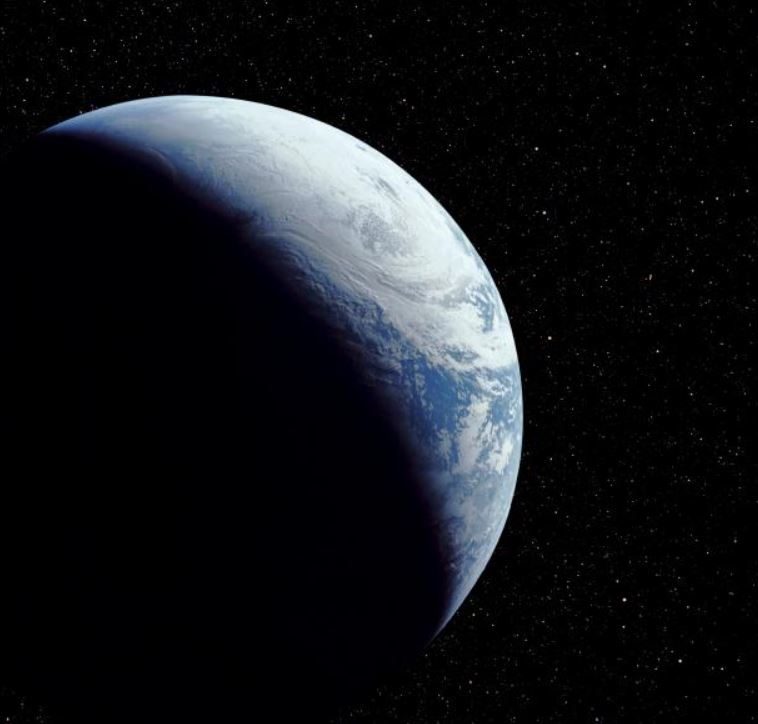


 10:56:46
10:56:46  2024-03-03
2024-03-03  1637
1637

Since 1970, folks from around the world have gathered together to celebrate Earth Day, an appreciation for all the good stuff we’ve got here on the Earth – and a reminder to try not to mess it up. But what’s so special about the Earth, anyway?
All life on Earth exists within a 100-mile band, from just below the surface to the top of the atmosphere. That distance, compared to the size of the Earth itself, is as thin as the shell of an egg.
Take a deep breath. What’s flowing into your lungs? Air, that’s what. It’s mostly made of nitrogen (which is very neutral) and mostly just serves to take up space (but is combined with hydrogen to make ammonia by plants, which find it useful). But a good fraction of that air is oxygen, a byproduct of photosynthesis and all-around caustic, angsty element, but us animals put it to good use to power our metabolisms.
That oxygen is special: we’re the only planet in the solar system (and for that matter, the only planet that we know of) that hosts an abundance of oxygen in the atmosphere.
If you want something else to consider, take a drink of water. Water is ridiculously common in the universe: it’s made of hydrogen (which tops the charts in cosmic abundance) and oxygen (which is made inside of stars like our sun, and so also pretty popular). Water is the most common element in the cosmos, but most of it is either a) locked up in frozen ice or b) blasted into high-temperature smithereens.
The water on our planet is nice and liquid on the surface, which is a unique set of affairs. It’s the only planet in the solar system (and for that matter, the only planet that we know of) that has liquid water on the surface. What allows this is our particular distance from the sun. Any closer and we’d heat to death like Mercury; and any further and we’d freeze up like Mars.
But it doesn’t stop at air and water. The Earth has plate tectonics, which constantly cycles elements up and down the crust and pulls excess carbon dioxide out of the atmosphere and deep underground where it can’t do anyone any greenhouse-based harm. Although, I should note that this is a creakingly old geological process and can’t keep up with the rate of carbon emissions that humans have managed to obtain.
And we’ve got a moon! Our moon is huge, relatively speaking. We have the largest moon compared to its parent planet in the solar system. And if you ever look at a picture of the backside of the moon, you’ll see it pockmarked with countless craters. Those are scars from long-ago collisions with asteroids and comets – asteroids and comets that were meant for us.
Our Earth also has a nice, stable tilt. The stability of the tilt is essential – it keeps our weather and climate systems consistent over billions of years, so any evolving life doesn’t have to deal with any climatological gut-punching resets.
That’s it: that’s all we’ve got. Celebrate it and protect it.
Reality Of Islam |
|

A newly dev

Get ready f

Researchers

A new metas
 9:3:43
9:3:43
 2018-11-05
2018-11-05
10 benefits of Marriage in Islam
 7:5:22
7:5:22
 2019-04-08
2019-04-08
benefits of reciting surat yunus, hud &
 9:45:7
9:45:7
 2018-12-24
2018-12-24
advantages & disadvantages of divorce
 11:35:12
11:35:12
 2018-06-10
2018-06-10
 6:0:51
6:0:51
 2018-10-16
2018-10-16
 1:34:8
1:34:8
 2022-02-01
2022-02-01
bahlool & the throne of haroun rashid
 8:20:35
8:20:35
 2018-06-21
2018-06-21
 8:19:41
8:19:41
 2018-06-21
2018-06-21
 4:2:19
4:2:19
 2022-10-10
2022-10-10
 11:11:59
11:11:59
 2023-02-01
2023-02-01
 2:2:13
2:2:13
 2022-10-08
2022-10-08
 4:25:57
4:25:57
 2023-02-11
2023-02-11
 5:41:46
5:41:46
 2023-03-18
2023-03-18
| LATEST |